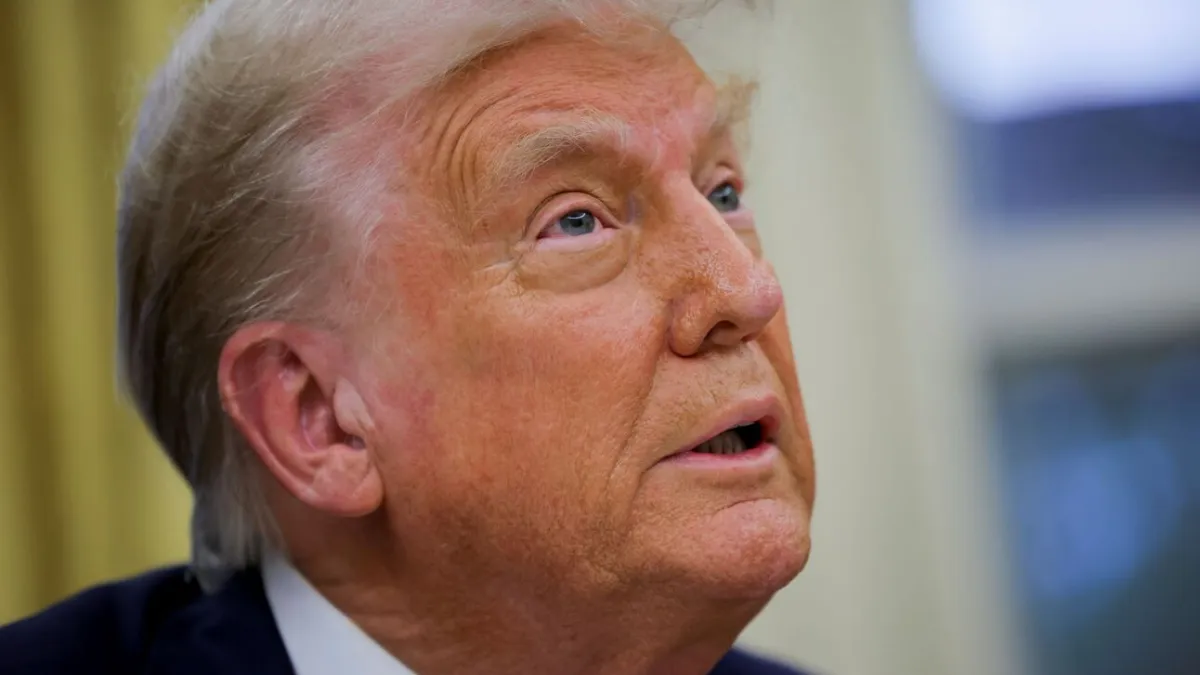
President Donald Trump issued an executive order Tuesday meant to lower prescription drug prices and “improve” some Biden-era policies, including a change backed by the pharmaceutical industry to the way Medicare negotiates some prices.
Trump’s order calls for administration officials to looks for ways to make Medicare’s price negotiations more transparent, minimize negative effects on innovation, lower Medicare Part D premiums, examine the role of industry middlemen, increase foreign drug imports, accelerate the approval process for generics, make prescription drugs more easily available over-the-counter, and make insulin and injectable epinephrine more affordable for low-income Americans or those without insurance.
The order also directs the Department of Health and Human Services to work with Congress to delay Medicare price negotiations for so-called “small molecule” drugs, which are often oils or tablets. The law as it stands now allows those drugs to be chosen for price negotiations four years earlier than a different class of drugs called biologics. The pharmaceutical industry has decried that “pill penalty” and said that the policy pushes drug companies to stop developing these medicines even if they are less expensive and more effective and convenient.
Trump’s order directs HHS to align the timeline for negotiation for both groups of drugs, though it doesn’t spell out the details. The change would end what the order calls a “distortion that undermines relative investment in small molecule prescription drugs.” Delaying the eligibility of small molecule drugs means they could be on the market for 11 years before becoming eligible for price negotiations and 13 years before any negotiated prices take effect.
In a new analysis of Trump’s order, policy analysts Juliette Cubanski and Tricia Neuman of KFF, a nonpartisan healthcare foundation, write that the change “could lead to higher Medicare prescription drug spending, higher prices, and potentially higher Medicare Part D premiums.”
The KFF report notes that 13 out of the 25 drugs that were previously selected for Medicare price negotiations, including some of the costliest medications, would not have been eligible if Trump’s four-year delay was in place when they were chosen: “For example, Eliquis and Jardiance, 2 of the top 3 drugs based on total gross Medicare Part D spending selected in the first round, would have been ineligible that year based on their FDA approval dates. Similarly, 2 of the top 3 drugs selected in the second round, Ozempic/Rybelsus/Wegovy (semaglutide) and Trelegy Ellipta, would have been ineligible for selection based on their approval dates.”
The 13 drugs that would have been ineligible under Trump’s delay accounted for $61 billion in gross Medicare Part D spending, or about two-thirds of the $91 billion in total spending on the drugs chosen for price negotiations. If those drugs weren’t eligible to be picked, Medicare would have had to turn to other drugs representing lower spending — meaning that Medicare savings would be reduced.
Steve Knievel, a drug-pricing advocate at the nonprofit advocacy group Public Citizen, praised elements of Trump’s order as “laudable” in comments to The Washington Post, but he also criticized the delay on price negotiations. “It strains credulity that they are serious when they say they want to negotiate deeper discounts — when in the same breath they are indicating they want to delay drug price negotiation,” Knievel told the Post.